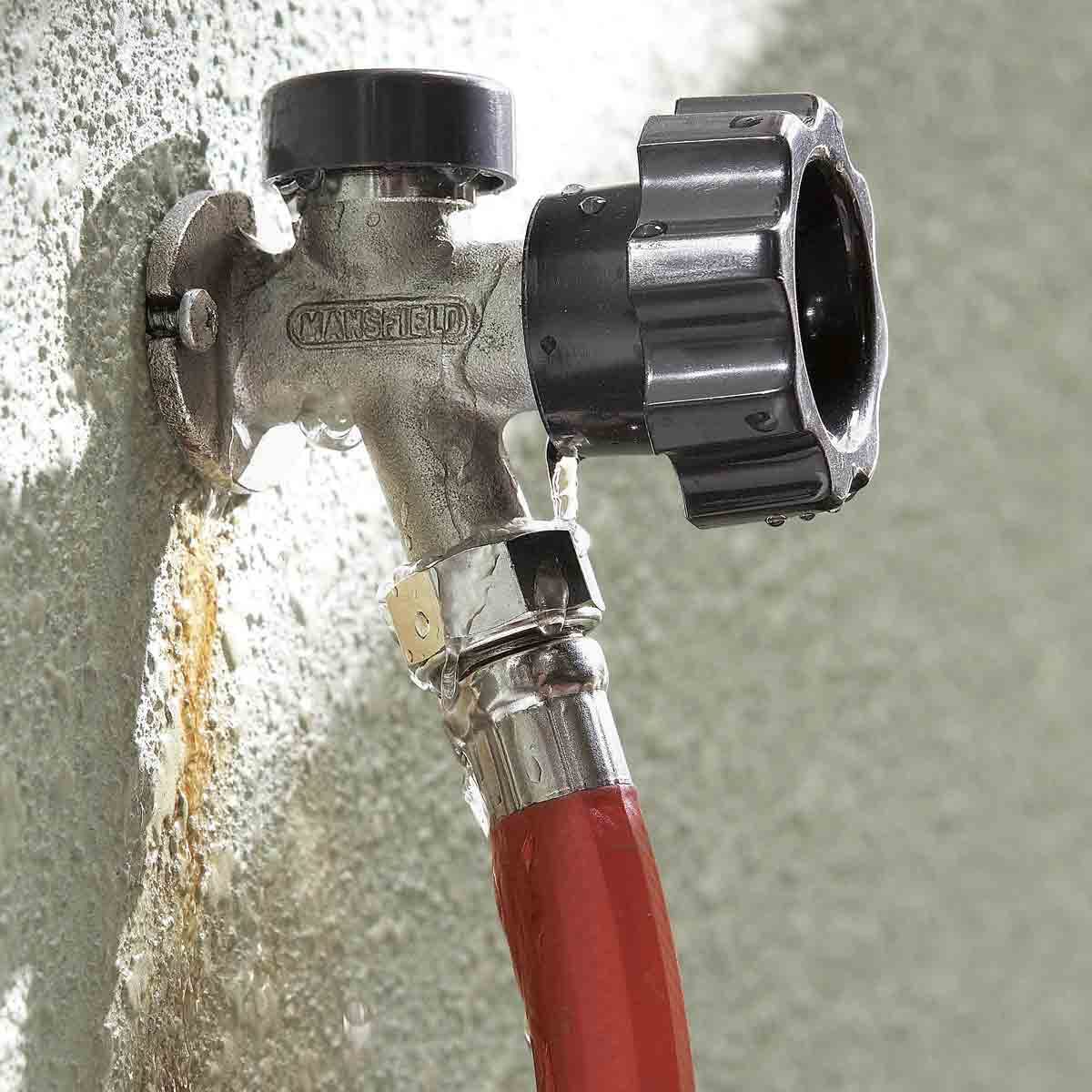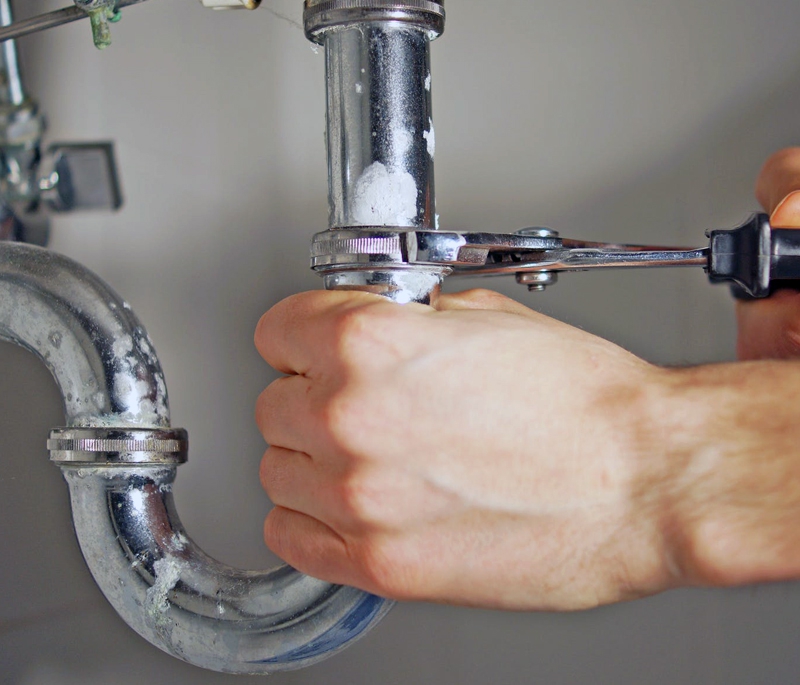Do you find yourself in search of insight about Winterizing Your Pipes?

All homeowners who reside in warm climates need to do their finest to winterize their pipes. It is something you need to do throughout fall before deep winter months genuinely starts. Failing to do so can mean calamity like icy, broken, or ruptured pipes. Right here are some handy winterizing hacks to maintain your plumbing system safeguarded even if the climate outside is shocking.
Switch on the Faucets
When the temperature declines and it seems as if the cold temperature will last, it will aid to turn on your water both inside your home as well as outdoors. This will certainly keep the water flowing with your plumbing systems. You'll finish up throwing away gallons of water this way.
Open Up Cabinet Doors Hiding Plumbing
When it's cold outside, it would certainly be valuable to open cabinet doors that are concealing your pipelines. Doing this small technique can keep your pipelines cozy and also restrict the potentially harmful results of freezing temperatures.
Take Some Time to Wrap Exposed Pipeline
One great and also very easy hack to warm up freezing pipes is to wrap them with warm towels. You can cover them initially with towels. After safeguarding them in position, you can put boiling water on the towels. Do it slowly to let the towels absorb the liquid. You can also use pre-soaked towels in hot water, simply don't forget to wear safety gloves to safeguard your hands from the warmth.
Attempt a Hair Clothes Dryer or Heat Weapon
When your pipes are almost freezing, your dependable hair dryer or warmth gun is a godsend. Bowling hot air straight into them might help if the hot towels do not assist remove any kind of clearing up ice in your pipelines. Do not utilize other things that generate direct flames like a blow lantern. This can lead to a bigger catastrophe that you can not regulate. You may wind up destructive your pipes while attempting to melt the ice. And also in the long run, you might also wind up shedding your residence. Be cautious!
When Pipes are Frozen, shut Off Water
If you observe that your pipelines are completely frozen or practically nearing that phase, transform off the major water valve right away. You will normally discover this in your cellar or laundry room near the heating unit or the front wall surface closest to the street. Turn it off as soon as possible to stop more damages.
Do not neglect to shut outside water sources, as well, such as your hookup for the yard home. Doing this will avoid extra water from filling up your plumbing system. With more water, more ice will pile up, which will eventually lead to burst pipelines. It is best to call a professional plumber for an evaluation if you are uncertain regarding the state of your pipes this winter. Taking this proactive method can save you thousands of bucks out of commission.
All homeowners that live in warm climates must do their ideal to winterize their pipes. Failure to do so can spell calamity like icy, broken, or ruptured pipes. If the hot towels do not aid displace any type of working out ice in your pipelines, bowling hot air directly right into them might help. Transform off the primary water valve immediately if you see that your pipes are entirely icy or nearly nearing that stage. With even more water, more ice will certainly pile up, which will at some point lead to rupture pipes.
PREVENT YOUR PIPES FROM FREEZING THIS WINTER
A Leading Cause of Property Damage
When the weather is taking a deep nose dive into the cold dreary days, the risk of your pipes freezing and potentially bursting skyrockets. Unfortunately, during these cold dreary months, burst pipes are the most common denominator for property damage. The pipes that are most at the risk are those that are in areas where it is most cold in your home. For instance, pipes located in interior places such as basements, attics, and your garage. Unfortunately, that doesn’t mean that the pipes running through your cabinets or exterior walls can’t freeze. Good news, however, is that you can do things to help prevent pipes from freezing.
How to Prevent Pipes From Freezing
Once the temperature starts to drop during the winter, you should be taking the proper measures needed to ensure that your pipes stay warm and that there is circulation of water through them. Some steps that experts may recommend could go against your better judgement when it comes to saving water and heat. However, it would go without saying that when expenses are compared, damaged pipes could put a bigger dent in your wallet than a water bill.
What Can I Do?
Keep your garage door closed. This is very important, especially if you have water supply lines running through your garage. Open your kitchen and bathroom cabinets to allow warm air to circulate through them. Allow air circulation throughout your home. Keeping the interior doors open will once again allow the warm air to circulate inside your home. Ensure your thermostat is running the same temperature throughout the night and day. If you plan to be away from home during the cold months, set your temperature no lower than 55° F. This should provide enough heat to keep the pipes warm and prevent any remaining water inside the pipes from freezing. For more of a long-term solution, add insulation to attics, basement, and other crawl spaces around your home. By allowing your faucet to drip, it will alleviate pressure in the system. This is important because the pressure that is created between the blockage and the faucet can potentially cause the pipes to burst. Allowing the faucet to drip will prevent the pressure from building up, therefore keeping the pipes from bursting. Seal any cracks, openings, and crawl spaces around your home to prevent cold air from coming inside. This keeps your pipes-not to mention your home-warmer and less susceptible to issues caused by freezing temperatures. For the pipes in your home that are easily accessible, applying electrical tape to them might prevent them from freezing over. This is a quick fix, as you can apply the tape directly to the pipe. There are two options for heating tapes. One turns on and off by itself when it senses heat is needed. The other type of heating tape needs to be applied when heat is needed and removed when not necessary. If you have exposed pipes in your home, you can check this website to take a look at a few options that would be available at a shop near you.

As a keen reader on Winterizing Your Pipes, I think sharing that excerpt was really useful. I beg you take the opportunity to share this post if you enjoyed it. We cherish reading our article about How to Prevent Frozen Pipes.
Visit